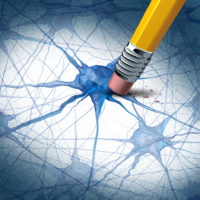Your life runs busy these days, doesn’t it? How busy are you? Very busy? Extremely busy? Ridiculously busy?
Ever noticed how many people talk about how busy they are? It’s as if we live in a culture where most everyone is addicted to busyness. Even kids are busy these days, scheduled with extra-curricular activities after school, gads of homework, tweets and Facebook updates so they are as exhausted as we are at the end of the day.
We live an increasingly frenetic lifestyle, go-go-go, all day, every day. And when we’re not going, we’re texting, or emailing, or expecting a phone call, or downloading photos, or checking our emails, updating our Twitter feeds, responding to Facebook comments and so on. In other words, we are constantly distracted. It’s hard to get anything done without a buzz, text, email or phone call constantly interrupting our train of thought.
Which means it’s increasingly harder to be present in our relationships with others. And the lack of presence makes our relationship with our spouse (lover, children, friends, co-workers) superficial and shallow, lacking in genuine substance and depth, and keeping us from feeling truly connected to each other.
Does it surprise you to know that many families, when together, are texting or going through emails—barely conscious of the other people who might be in the same room? That mothers are routinely seen carrying a child in one arm while preoccupied with reading something on their cell phones with their other arm? That couples sit at a restaurant together not talking or even looking at each other while each is absorbed in reading their own separate iPhones or Blackberrys? That young men and women text and update their Facebook feeds while out on a date together?
This growing tendency of us being physically present but emotionally and mentally absent from each other keeps us from feeling close and connected. Presence requires your full attention, and although people are fond of bragging about how well they multitask, in truth our multitasking keeps us from doing anything fully, whole-heartedly and with full attention. Often we wind up doing many things poorly, simply because we don’t give each task or each person their separate time and attention.
Presence requires our focus to remain on one task or one person—without interruption or distraction. You can train yourself to become more present and focused by quieting your mind and turning off the distractions.
Perhaps the easiest way to quiet the mind is to just close your eyes and breathe for 5 minutes, with no interruptions of any kind. Sounds easy, doesn’t it? So try it.
Other ways of helping yourself to be truly present: Put your cell phones or other devises on silence or sleep mode for an hour, or alternate an hour on and then an hour off. Get a good night’s sleep—it’s harder to be focused when we’re tired. Eat wisely, and don’t eat too much. Be careful about overindulging in mind-altering substances. Quit trying to convince yourself that you can multitask effectively. Don’t take on more and more projects or demands on your time—do less for a while. Make sure you’re taking good care of yourself and that you’re doing occasional things that regenerate your spirit, your heart and your body. Schedule fun activities every so often, with no devises that scatter your attention.
How much time do you spend—with no distractions—attempting to be connected with other people, especially the most important people to you? Are you having an increasing problem in connecting or staying connected with others? If so, practice giving people your undivided attention with no electronic or web based distractions. Offer your full presence for a full hour, and your connections with other people will have a stronger chance of growing richer, deeper and closer.
Technology gives us the illusion of closeness and connection, but not real intimacy. Don’t permit yourself to substitute “friending” people on Facebook for having real friends.






